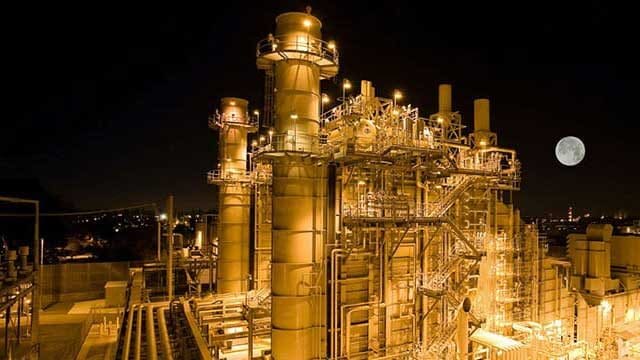The fight over oil’s future intensifies as the IEA faces growing industry and political skepticism

For interview requests, click here
The International Energy Agency (IEA) is under increasing scrutiny as the global energy landscape shifts under a second Trump administration.
With the United States withdrawing from the Paris Climate Accord and stepping away from multilateral commitments, global institutions focused on climate and energy transition are facing renewed challenges. The IEA, an energy watchdog under the Organisation for Economic Co-operation and Development (OECD), has been at the forefront of advocating for reduced fossil fuel use and increased investment in renewables. But its projections and policies are now facing pushback from fossil fuel producers, industry leaders and political figures aligned with Trump’s energy agenda.
For the last decade and a half, the IEA has emphasized the need to control emissions and limit the rise in global temperatures. To counter the risks, the agency has urged shifting from fossil fuels to green energy as quickly as possible. Policymakers worldwide, including the previous Biden administration, have responded by increasing efforts to diversify away from oil and gas. In recent years, the IEA has suggested that global oil demand is reaching a plateau, initially forecasting a peak by 2030 before revising that to as early as 2027.
 IEA’s influence fading amid Trump’s pro-oil stance. |
| Recommended |
| The myth of peak oil fades as global reserves continue to expand
|
| Peak Oil is dead: Technology shatters the era of scarcity
|
| Global oil demand to peak by 2029. IEA predicts major glut
|
Not everyone agrees. Saudi Arabia and the Organization of Petroleum Exporting Countries (OPEC) were the first to react, arguing that the world remains decades away from peak oil. The fossil fuel industry and major oil companies also pushed back, insisting that global energy needs will require oil for the foreseeable future.
Many in the industry have argued that the IEA should return to its original role of stabilizing global energy supply rather than focusing on emissions reductions. Trump has aligned himself with this view, advocating for expanded fossil fuel production. His long-standing position has been “Drill baby, drill.” For that reason, the industry has rallied behind him.
In late January, Neil Atkinson, the IEA’s former oil industry and market chief, criticized the agency’s emphasis on the global energy transition. In a report titled Energy Delusions, written jointly with Mark Mills, director of the National Center for Energy Analytics, Atkinson argued that the IEA should concentrate on oil and gas supplies. The report was launched on Capitol Hill alongside Wyoming Republican Senator John Barrasso and Alan Armstrong, CEO of pipeline firm Williams and current president of the National Petroleum Council.
The report identifies 23 assumptions made by the agency that led to what it calls a flawed conclusion that global oil output would peak by 2030 and that no new oil and gas investment was needed. It says the IEA underestimates growth in emerging economies as well as in plastic and petrochemical markets and overestimates the pace of electric vehicle adoption.
“The promotional aspirations and flawed assumptions underlying IEA’s peak-demand scenarios have serious implications, given the obvious global economic and security considerations in planning for and delivering reliable, affordable energy supplies,” the report states.
Barrasso, who led a congressional report criticizing the IEA for its focus on green policies, declined to respond when asked whether he thought IEA chief Fatih Birol should be replaced but said the agency risks losing its relevance. “They (the IEA) are going to get ignored because they are basing their proposals on aspirations that are never going to happen and the world is seeing that and elections are rejecting what they want,” he said at the Jan. 29 report launch.
The IEA rejected the report’s findings, calling it “full of rudimentary errors” and “fundamental misrepresentations about both energy systems in general and IEA modelling in particular.” The agency said its oil demand projections are in line with those of other organizations, including major oil companies.
The pressure on the IEA reflects a broader challenge to post-Second World War institutions such as the World Bank, the International Monetary Fund and the OECD itself. If the trend continues, some analysts say it could mark a larger geopolitical shift, with the U.S. stepping back from its historical role in shaping global economic and energy policies.
A new energy order may be taking shape, and the world is watching.
Toronto-based Rashid Husain Syed is a highly regarded analyst specializing in energy and politics, particularly in the Middle East. In addition to his contributions to local and international newspapers, Rashid frequently lends his expertise as a speaker at global conferences. Organizations such as the Department of Energy in Washington and the International Energy Agency in Paris have sought his insights on global energy matters.
Explore more on Energy sector, Energy transition, Alternate energy, World economy
Troy Media is dedicated to empowering Canadian community news outlets by providing independent, insightful analysis and commentary. Our mission is to support local media in fostering an informed and engaged public by delivering reliable content that strengthens community connections, enriches national conversations, and helps Canadians better understand one another.

